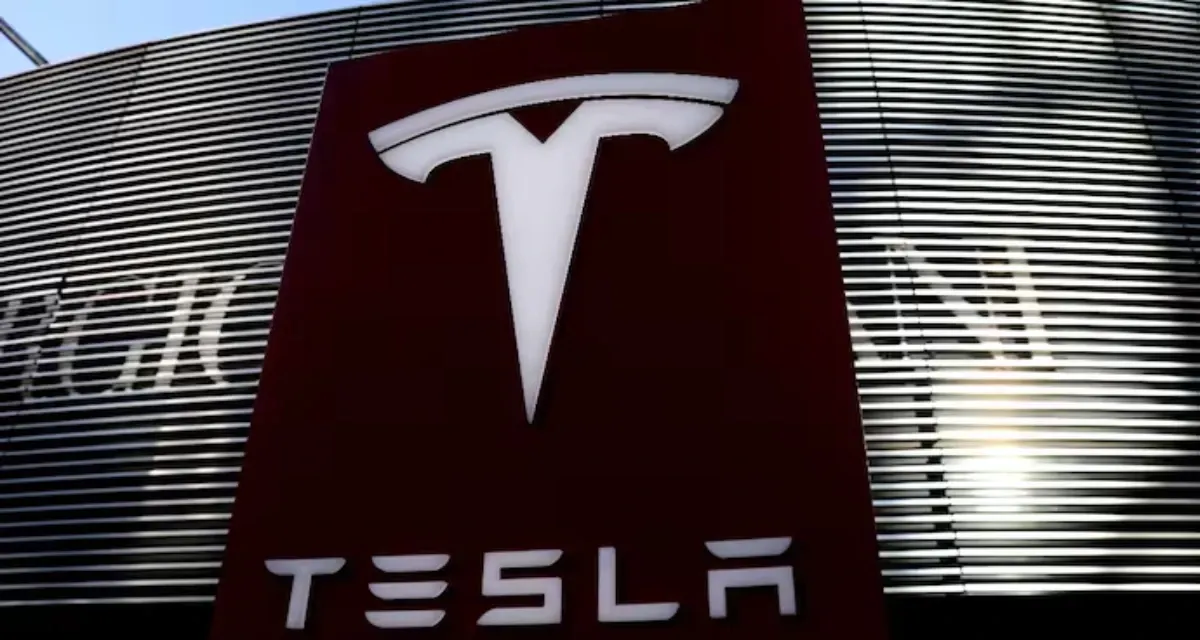

In a surprising turn of events, American electric vehicle giant Tesla Inc., known for its pioneering role in the electric vehicle (EV) market, has seemingly withdrawn from its much-anticipated entry into India. After advocating for and achieving reduced import taxes on EVs from the Indian government, Tesla has ceased all communication with Indian officials. This abrupt silence has led to speculation that the company may have shelved its plans to invest in the Indian market, leaving many to wonder about the reasons behind this sudden shift.
Tesla’s journey towards entering the Indian market has been marked by numerous discussions and policy negotiations over the years. The company, led by CEO Elon Musk, had shown keen interest in tapping into the growing Indian EV market. The Indian government, in response, took significant steps to accommodate Tesla’s requirements, including revising the EV import tax structure. This new policy was aimed at attracting foreign EV makers to invest in local production facilities, with incentives tied to an investment of at least Rs 4,150 crore (approximately $497 million) and a commitment to start local production within three years.
However, sources indicate that after successfully pushing for these policy changes, Tesla has unexpectedly gone silent. This halt in communication has not only puzzled Indian officials but also cast a shadow over the future of Tesla’s operations in India. Musk’s planned visit to India in late April, where he was scheduled to meet Prime Minister Narendra Modi, was seen as a pivotal step towards finalizing Tesla’s entry. The abrupt cancellation of this visit and the subsequent radio silence have left many questions unanswered.
Reports suggest that Tesla’s current financial challenges might be a significant factor behind this sudden retreat. The company has been grappling with capital issues, which have made it reluctant to commit to new, large-scale investments. This financial strain is compounded by Tesla’s recent announcement of its second consecutive drop in quarterly deliveries, highlighting the difficulties in maintaining its growth momentum amid rising operational costs and competitive pressures.
In addition to financial challenges, Tesla is facing intense competition in one of its key markets: China. The Chinese EV market has seen a surge in local competitors, with companies like BYD (Build Your Dreams) gaining substantial market share. BYD’s recent launch of the Seal EV sedan in India is a testament to its aggressive expansion strategy. This growing competition in China, coupled with Tesla’s resource management issues, has likely influenced the company’s cautious approach to entering the Indian market at this time.
Further complicating Tesla’s situation is the significant staff reductions announced by Elon Musk earlier this year. This move underscores the company’s need to manage its resources more cautiously. Additionally, Tesla’s much-anticipated Cybertruck has been facing production delays, and the construction of a new plant in Mexico has been postponed. These delays and reductions point to a broader strategy of resource consolidation, possibly at the expense of new ventures like the proposed entry into India.
Despite Tesla’s retreat, India’s EV market presents a burgeoning opportunity. Although EVs currently account for only 1.3% of total car sales, the demand for cleaner, more sustainable transportation solutions is growing. High upfront costs and a lack of charging infrastructure remain significant barriers to wider adoption. In response, the Indian government has been proactive in creating a conducive environment for EV manufacturers. The recent reduction in import taxes for foreign EV makers willing to invest in local production is a clear signal of India’s commitment to fostering a robust EV ecosystem.
In Tesla’s absence, Indian officials are shifting their focus towards domestic automakers to drive the country’s EV transition. Companies like Tata Motors Ltd. and Mahindra & Mahindra Ltd. are expected to play pivotal roles. Both have already made significant strides in the EV sector, with a range of new electric models in the pipeline. Tata Motors, in particular, has been aggressive in its EV strategy, and Mahindra is also stepping up its game. Maruti Suzuki, India’s largest automaker, is not far behind, with plans to launch the eVX electric SUV.
Despite the current pause, Indian officials remain optimistic that Tesla might reconsider its stance once it resolves its financial and operational challenges. The government has indicated that Tesla would still be welcome under the new import tax policy if it decides to re-engage in discussions. For now, the future of Tesla in India remains uncertain, but the hope persists that the world’s leading EV maker will eventually make its mark on the Indian market.
Tesla’s sudden silence after achieving favorable policy changes has left a void in India’s EV landscape. As the country continues to push for greater EV adoption, the role of domestic automakers becomes increasingly crucial. While Tesla’s future in India hangs in the balance, the government’s commitment to EV growth remains steadfast, providing a fertile ground for both local and international players to thrive.
Also Read: